Prabowo Subianto claimed victory in Indonesia’s presidential election
Prabowo Subianto has declared victory, setting the stage for the former military general with a checkered past to lead the world’s third-largest democracy home to 280 million people.
Indonesia’s Defence Minister Prabowo Subianto has claimed victory in Indonesia’s presidential election as preliminary results put him well ahead of his two rivals to lead Southeast Asia’s biggest economy.
Polls have long shown the fiery defence minister to be the favourite after he pledged to carry on the agenda of popular outgoing leader Joko Widodo, who is accused of inappropriately backing his campaign and whose son is Subianto’s running mate.
“All counts, all pollsters... showed figures that Prabowo-Gibran won in one round,” he told a cheering crowd of supporters at a packed arena in central Jakarta, referring to his running mate Gibran Rakabuming Raka, who stood beside him in a matching checked shirt.
“This victory should be a victory for all Indonesians.”
Official results are not due until next month but at least four government-approved groups - making projections based on official early tallying -- showed Subianto winning around 57 per cent for a clear majority in one round.
While claiming victory, Subianto stressed “we must still wait for KPU’s official result”, referring to the election commission.
“We believe Indonesian democracy is running well. The people have determined, the people have decided,” he told supporters.
Subianto, who was a military chief during the Suharto dictatorship a generation ago, needs more than 50 per cent of the overall vote and at least a fifth of ballots cast in over half the country’s 38 provinces to secure the presidency.
The 72-year-old, who pushed street protests and launched legal challenges after losing the previous two elections, thanked his supporters and called for unity.
“Now the campaign is over, we must unite again.” The government-approved polling groups’ “quick counts” have also been used in previous elections by candidates to claim victory.
“This is an unprecedented landslide for an incoming president,” said ANU research fellow Liam Gammon. Referring to the outgoing President by his popular moniker, he added: “I think this is a genuine endorsement by the electorate of someone they see as Jokowi’s successor.”
Tens of millions of Indonesians braved storms and floods in Jakarta and in central Java where at least 100 polling stations were closed because of the weather.
More than 19,000 seats were being contested in 2700 electoral districts for the regional vote, while 580 parliamentary seats are up for grabs by 18 political parties.
But it was the presidential contest that took up all the oxygen.
“The hope is to win,” frontrunner Prabowo said before voting in Bogor on Wednesday morning. “Come to the voting station … cast your votes according to your conscience.”
A huge turnout was critical to his chances of securing more than 50 per cent of the vote and so it turned out to be. Kompas Research and Development estimated participation could exceed the 92.6 per cent recorded in 1999.
The former son-in-law of Indonesia’s late autocrat Suharto has promised to continue the development agenda and economic policies of Jokowi, under whose steady leadership the economy has bounced back strongly from a pandemic-induced downturn.
That was enough to convince 24-year-old real estate businessman Aga, who came out to vote with his father at a polling booth just a few hundred metres from Prabowo’s campaign headquarters in upscale south Jakarta.
“The Jokowi decade has been good for a lot of Indonesians and people are looking for continuity of the progress that’s already been made,” he told The Australian.
Like so many Prabowo supporters, Aga said he was not concerned about the former special forces commander’s dark past.
Prabowo was dismissed from the military over allegations his unit kidnapped and tortured democracy activists in the last days of the Suharto regime. He was also banned from the US for many years over allegations of human rights abuses in East Timor. “That’s what checks and balances are for,” said Aga. “I have faith in the strength of Indonesian democracy – that what happened in the past could not happen again.”
Close to 205 million people were eligible to vote for Prabowo or his rivals, former Jakarta governor Anies and former Central Java governor Ganjar , in only the fifth presidential election since the 1998 fall of the Suharto dictatorship.
The new president takes office in October, succeeding the still-hugely popular Jokowi who is constitutionally barred from contesting a third election.
But Jokowi has burned through his political capital to help his chosen successor, and both he and Prabowo – who lost two previous presidential elections to the outgoing leader – were keen to avoid a June run-off vote.
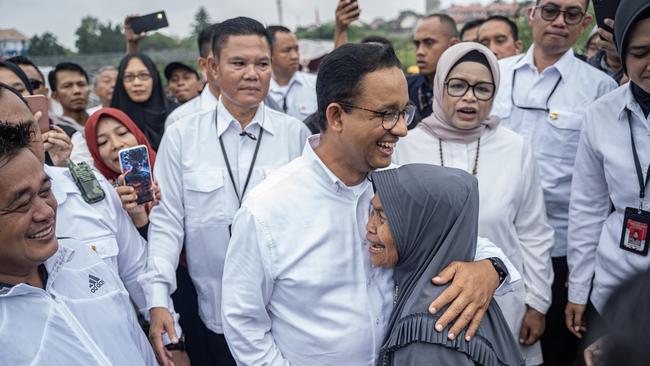
As the candidate most likely to challenge Prabowo in a second-round, Anies appeared confident as polls opened. “Day by day I can feel the spirit for change is getting stronger, it’s undeniable,” the 54-year-old said.
In north Jakarta’s Kampung Akuarium, a low-income waterfront housing estate rebuilt under Anies’ governorship after its residents were evicted by his predecessor, support was strong for the former academic who had vowed to improve governance, strengthen democracy and build Indonesia’s presence on the international stage. “He has helped us a lot here,” 33-year-old security man Teguh said of Anies. “Jokowi has been good but if Anies is president the change could be better.”
Ganjar called for “clean elections” before voting in his home province of Central Java, which is also a Jokowi stronghold.
“What’s important is the integrity of how we count the votes. I am sure that all three candidate pairs will accept the results with grace,” he said. A year ago, the 55-year-old was the frontrunner thanks to the backing of the Indonesian Democratic Party of Struggle which also supported Jokowi’s presidency. But his campaign has faltered badly since Jokowi switched allegiances after falling out with party matriarch and former president Megawati Sukarnoputri.
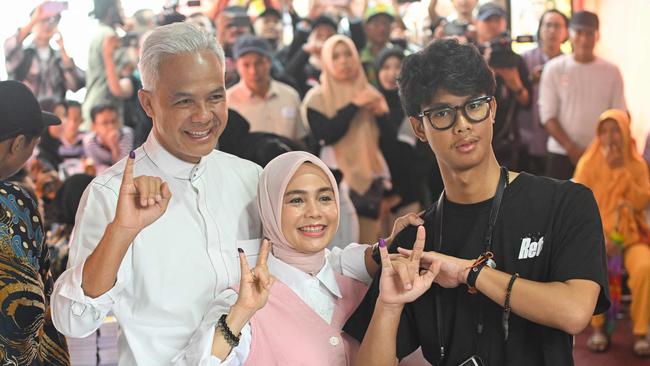
Indonesia analysts have warned Jokowi’s support for Prabowo and his own son Gibran, a first-term mayor of Solo who will serve as vice-president under a Prabowo presidency, undermined the integrity of the electoral system and raised the prospect of potential post-election unrest.
Election eligibility laws had to be changed by the Constitutional Court to allow Gibran’s nomination. At age 36 he would have been too young to nominate under previous rules. It was Jokowi’s brother-in-law and then-chief justice who passed the deciding vote in a 5-4 decision. Rights groups have expressed alarm that Prabowo could further roll back democratic freedoms that have receded under Jokowi’s transactional presidency.
ANU politics professor Edward Aspinall said Prabowo was “much more a part of the old elite with a sense of political entitlement” than the more populist Jokowi.
“You can imagine a much more arbitrary system of rule than under Jokowi. More emotional and reactive,” he said. He added that he doubted Prabowo’s apparent transformation from strongman to statesman, given only five years ago he was “positioning himself as the man who would knock down every barrier in his way”.
Additional reporting: Dian Septiari


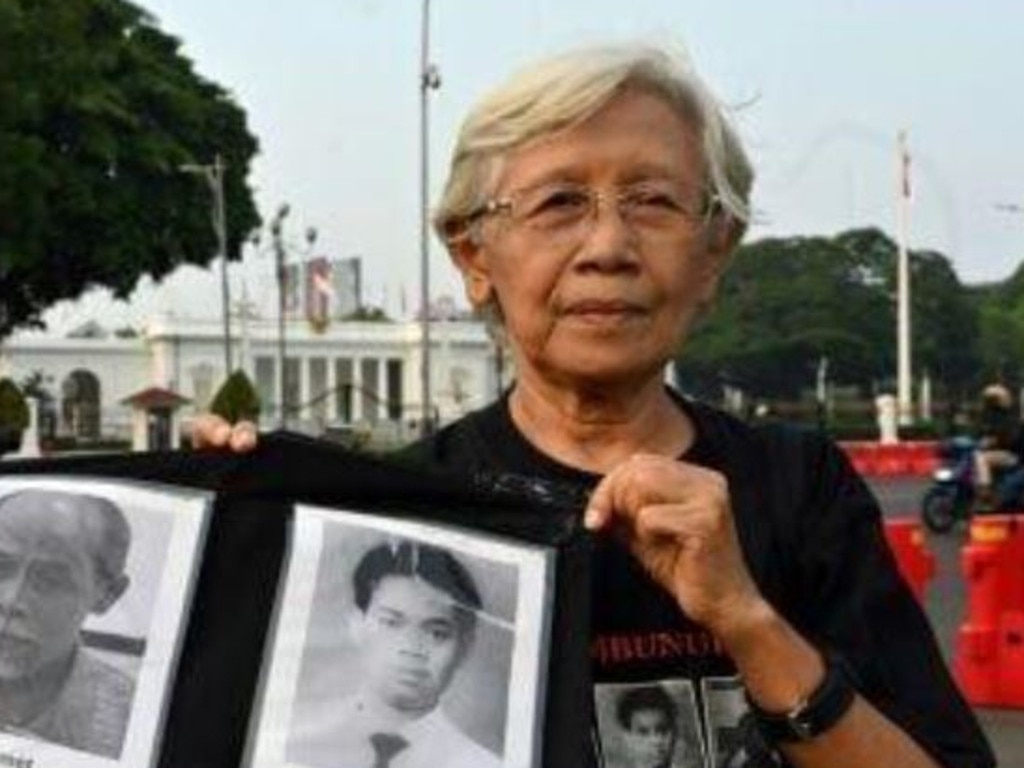
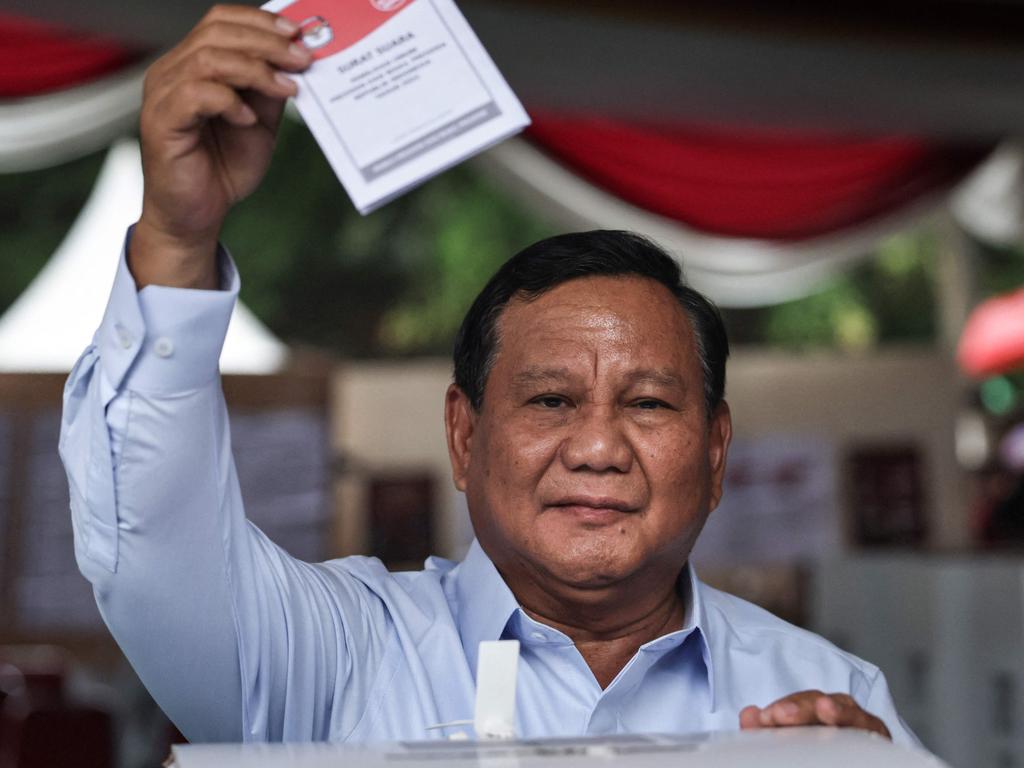
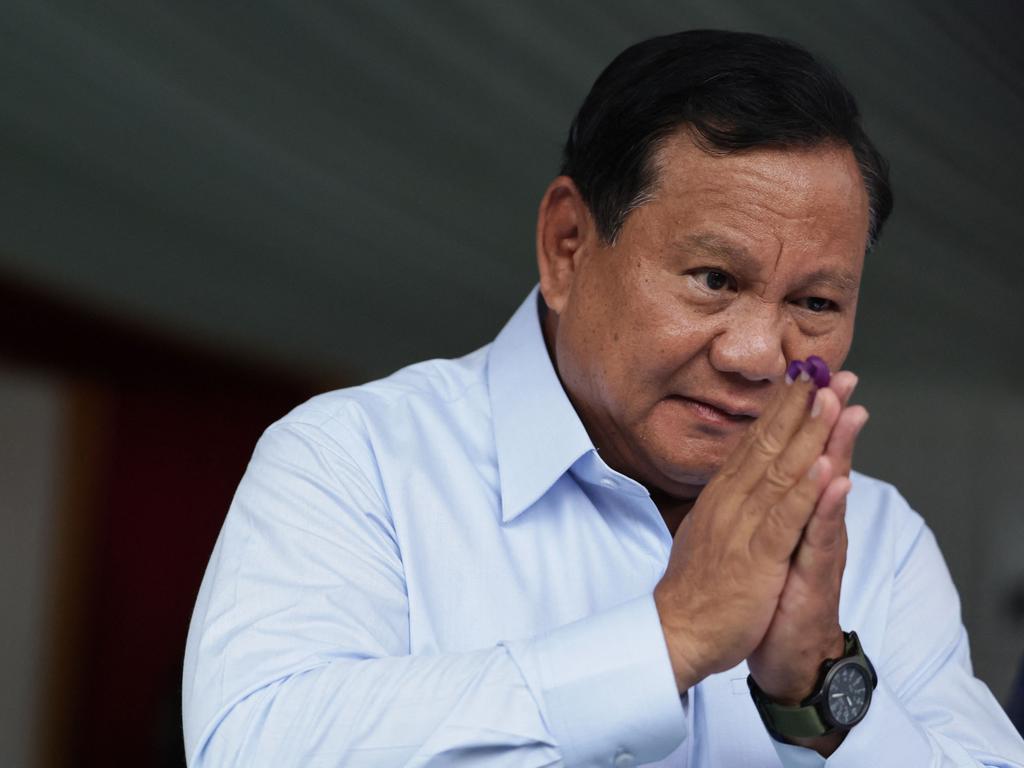


To join the conversation, please log in. Don't have an account? Register
Join the conversation, you are commenting as Logout